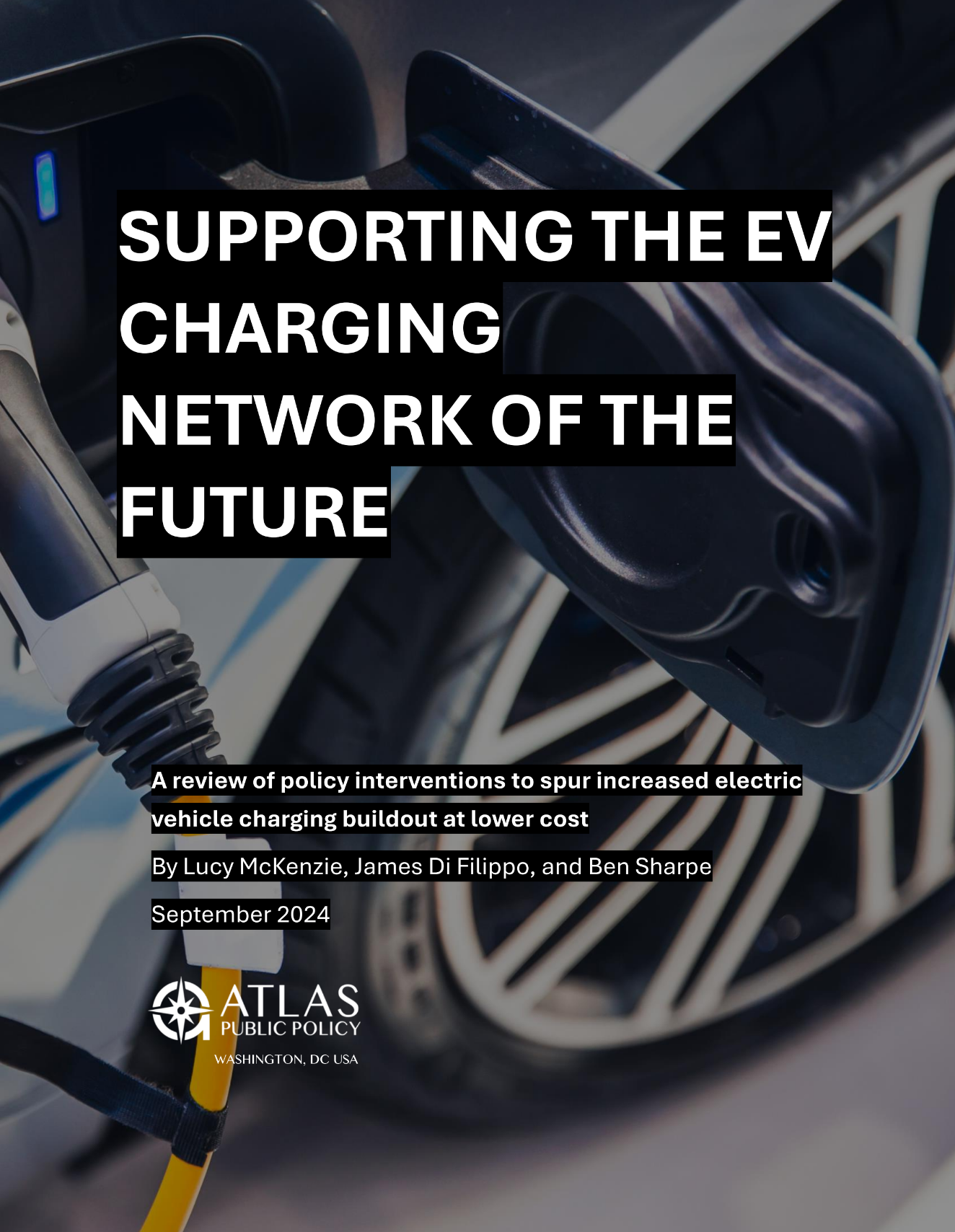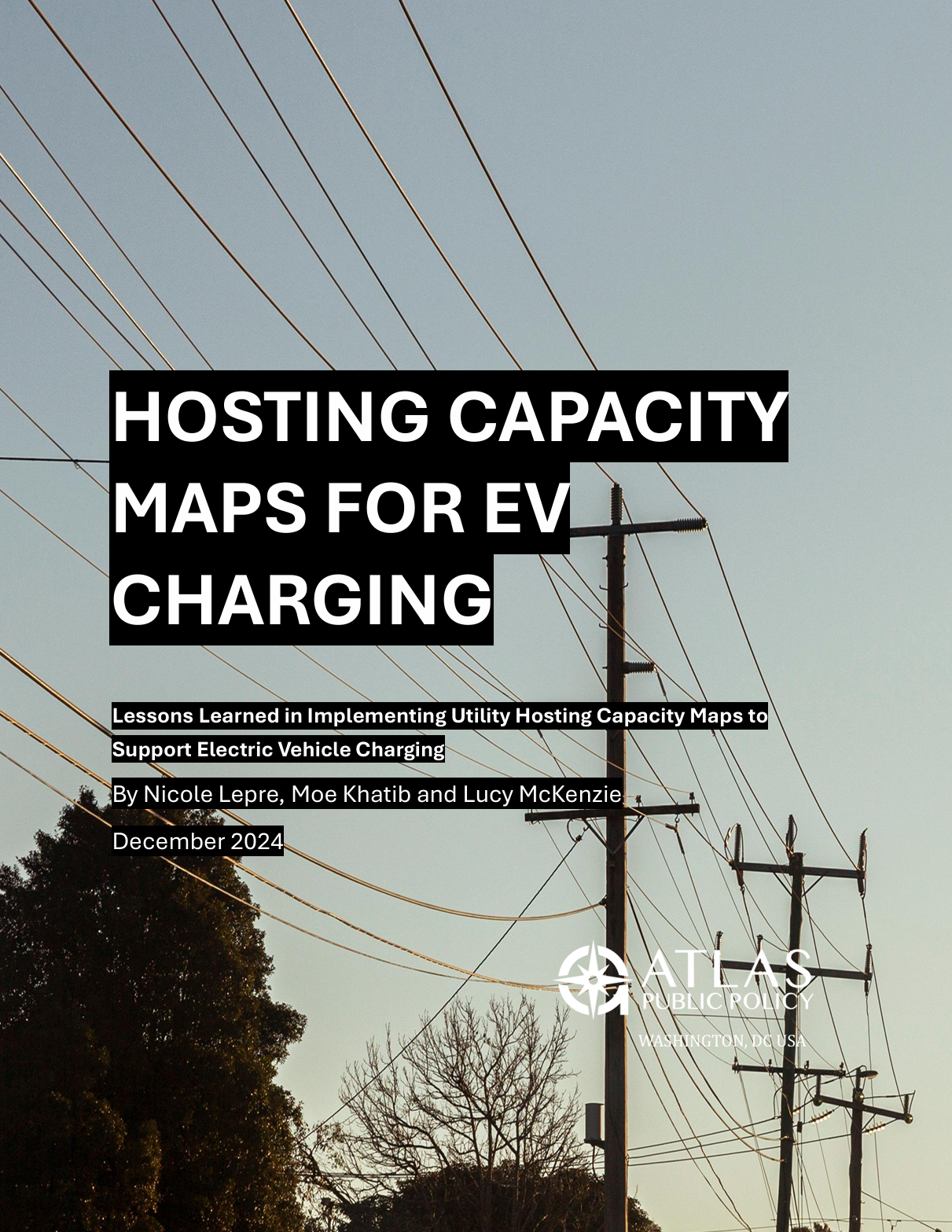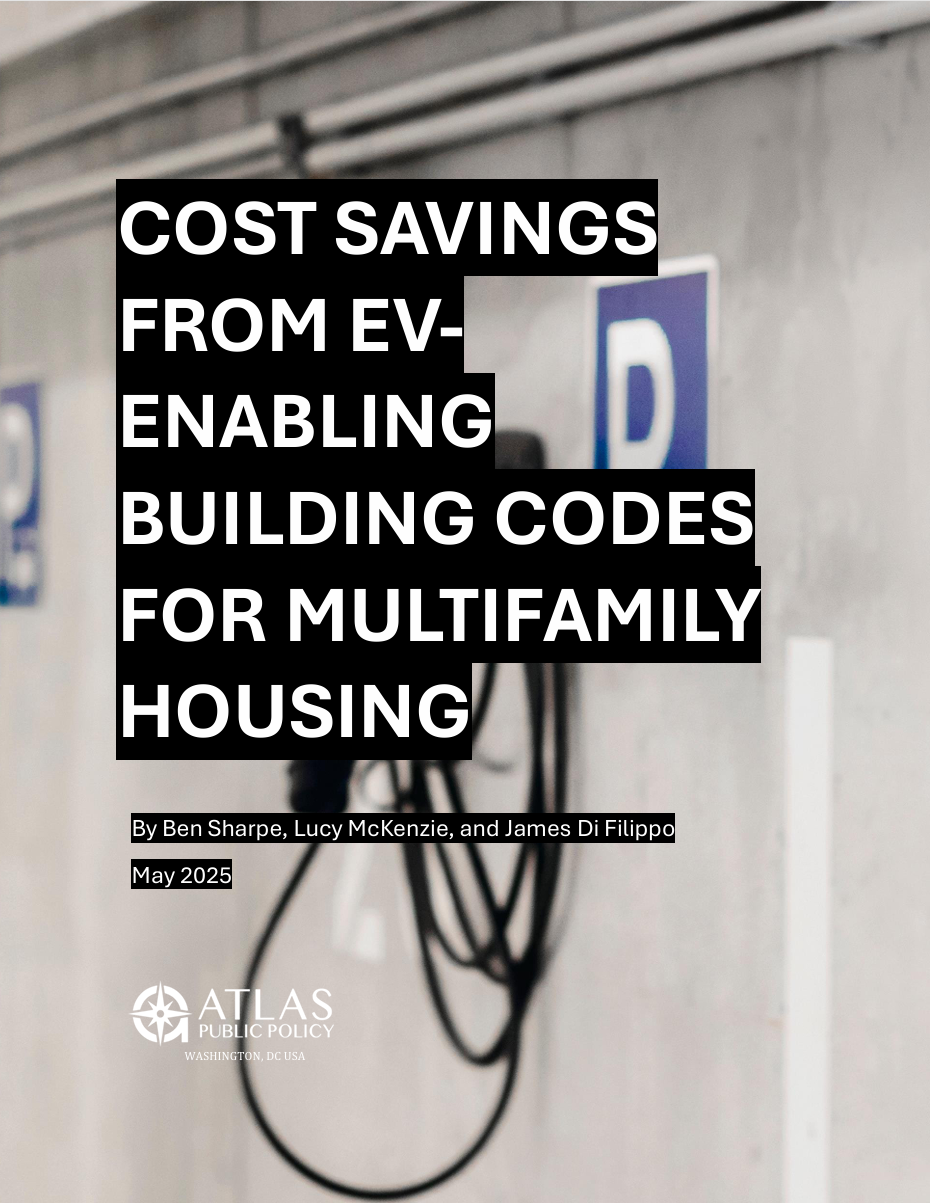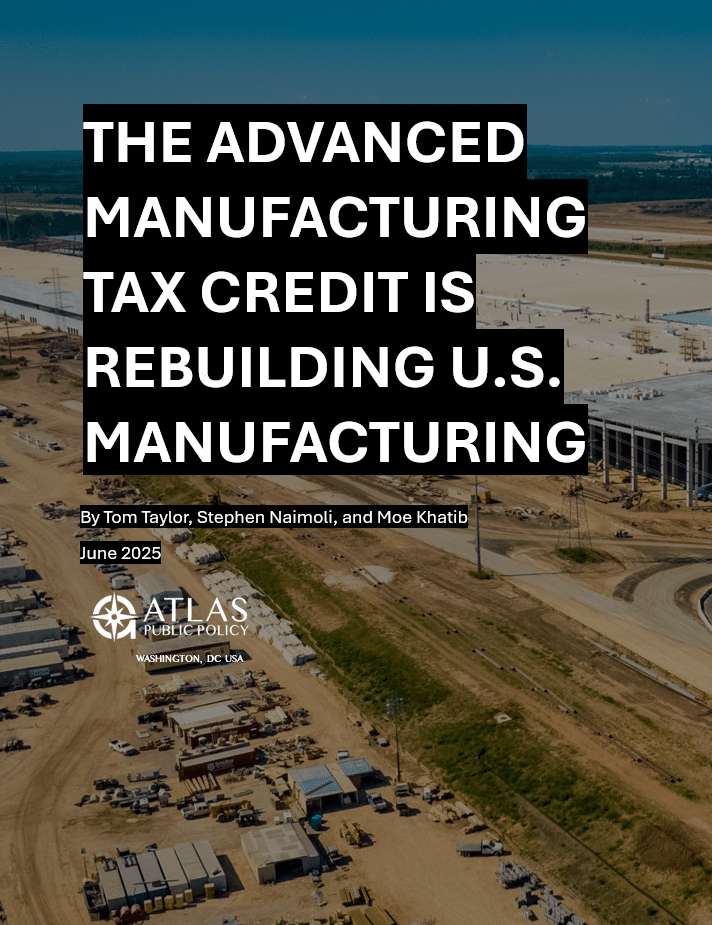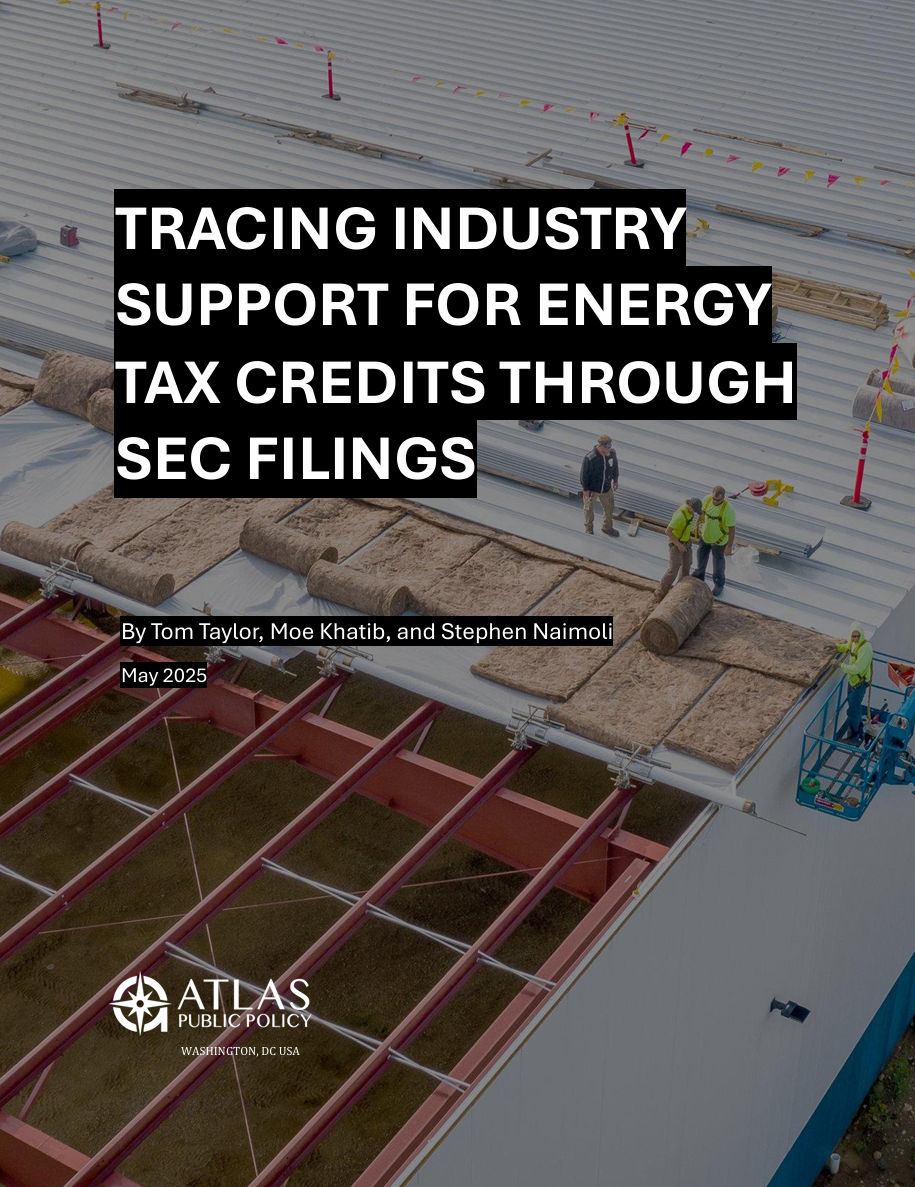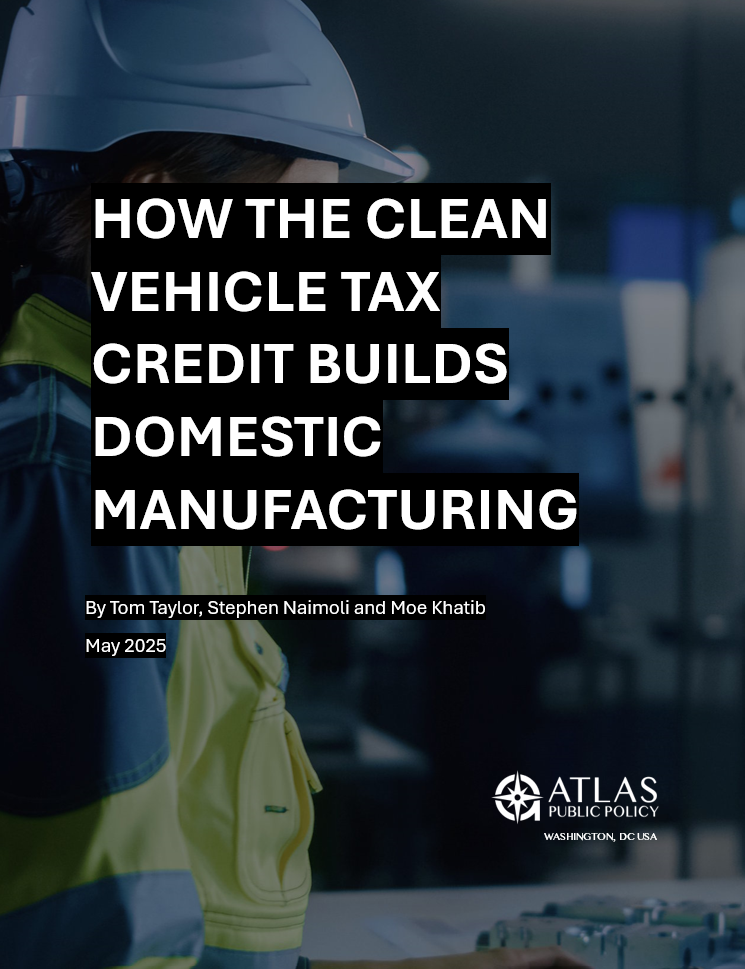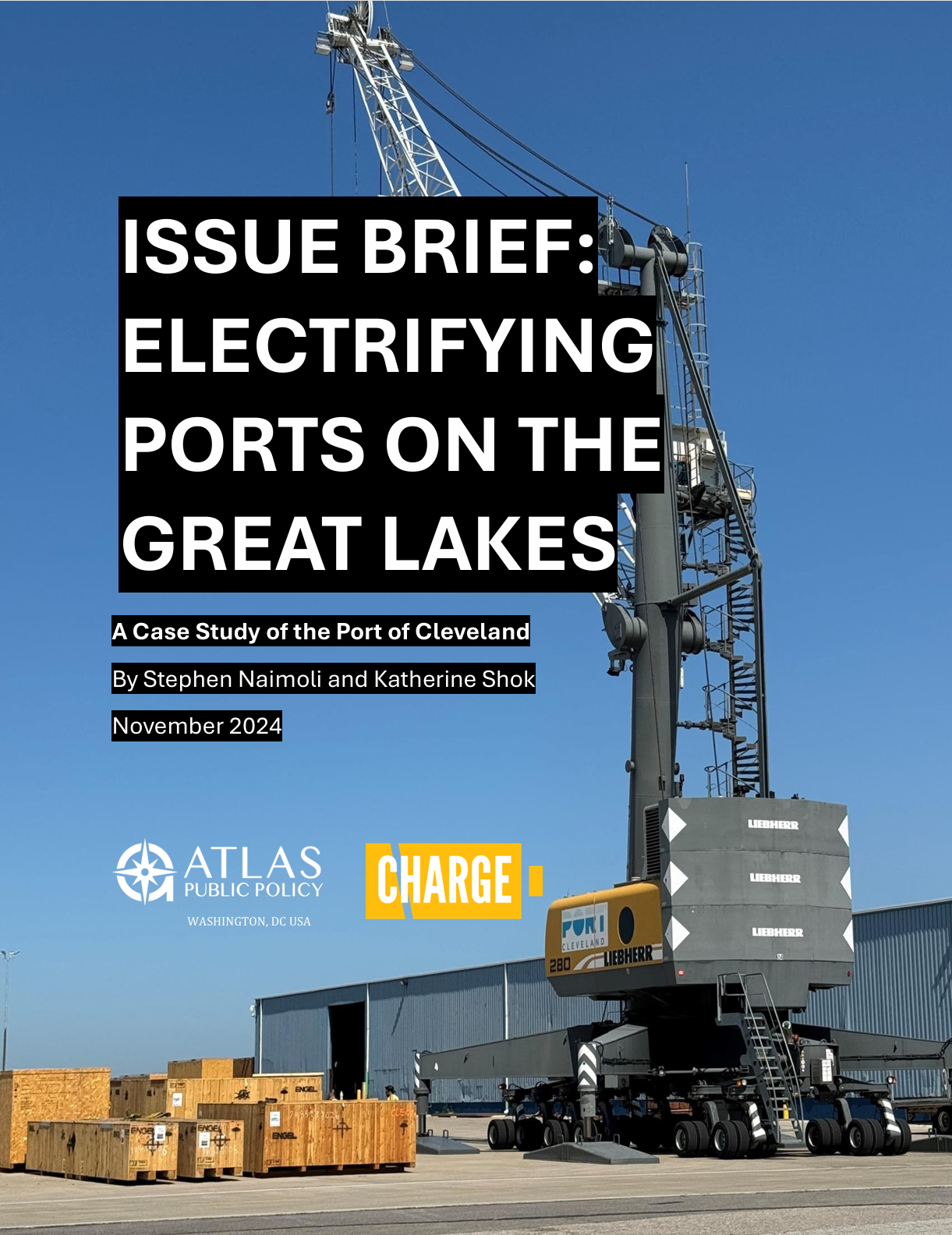The United States’ transition to electric vehicles (EVs) is expected to bring many benefits: emission reductions critical to averting climate catastrophe, healthier communities, decreased transportation costs, lower energy bills, and new, accessible job opportunities. Unlocking these benefits will require significant additional investments in EV charging infrastructure. The U.S. has made great strides in charger buildout, but an all-hands-on-deck approach from government agencies, utilities, charging networks, fleets, and other private sector actors is needed to continue and build momentum.
To support these efforts, Atlas Public Policy is analyzing the potential impacts of several policy interventions that governments, utilities, and utility regulators can put in place today to support the EV charging and grid connection needs of tomorrow. We will continue to publish the results of those analyses here as they are completed.
Atlas thanks the Center for Applied Environmental Law and Policy and the Natural Resources Defense Council for their support of this work. The conclusions contained herein at Atlas’s alone.
To receive updates on this analysis, click the subscribe button below and select “EV Charging Infrastructure.”
This brief provides an overview of policies that can spur increased EV charging buildout at lower cost. Federal, state, and local governments, public utility commissions, and utilities can all play a critical role in reducing the cost of grid connection for EV chargers, minimizing other charging infrastructure costs, and attracting private sector investment. The brief provides a rundown of available policy interventions along with examples of each from across the country.
Hosting capacity maps are an essential tool for developing EV charging at greatest speed and lowest cost. These maps show areas on the grid with available electrical capacity and potential constraints, enabling developers to make informed decisions that can significantly reduce costs and shorten project timelines. Atlas interviewed charging developers and utilities that rely on and develop these maps to understand how they are being used, the policies that can enable them, and how utilities can make them as useful as possible.
Atlas modeling suggests that EV-enabling building code requirements for multifamily housing could save the United States $8.6 billion over the coming decade. The reason for the savings: requiring EV-enabling infrastructure during construction adds modest upfront costs, but avoids much costlier retrofits later. Absent these requirements, these savings could go unrealized due to split incentives between builders and future owners and residents. Building codes bridge this gap, ensuring short-term incentives don’t prevent the most cost-effective long-term solution.
